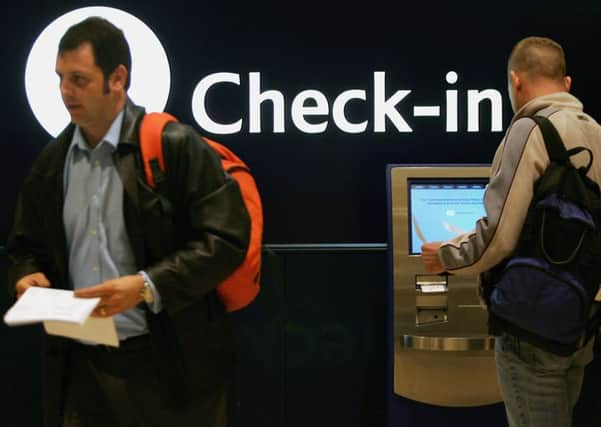Airlines warned about ripping off passengers over '˜no-show' flights


The clauses – often buried in airline terms and conditions – mean passengers who miss an outbound flight can be considered a “no-show” and find their return or connecting journey cancelled. Passengers are then often forced to buy another seat at a vastly inflated price or pay a hefty fine, sometimes up to £3,000.
Consumer watchdog Which? has written to nine carriers, including BA and Virgin Atlantic, informing them that the practice is potentially in breach of both the Consumer Rights Act and the Unfair Terms in Consumer Contracts Directive.
Advertisement
Hide AdAdvertisement
Hide AdWhich? investigated 16 airlines and found that 11 used the clauses. Two operators, Thomas Cook and Aurigny, have now said they plan to drop their no-show clauses.
The crackdown is a joint project between consumer groups across Europe. Watchdogs in the Netherlands and Greece are today announcing court action against Dutch airline KLM, which, along with Air France, has some of the harshest no-show terms. The two airlines are already involved in a legal battle with Belgian consumer group Test Achats.
Some airlines claim these practices are necessary to stop “tariff abuse”, when passengers buy return tickets that are cheaper than a single flight. However, two of the biggest airlines in Europe, easyJet and Ryanair, do not use the clause.
Alex Neill, managing director of home products and services at Which?, said: “We don’t think there’s any good reason for a ‘no-show’ clause to exist – it only works in favour of the airline. It should be removed immediately by airlines, who need to show more respect for their passengers.”
Which? has written to the airlines and asked them to respond by 28 December.
Virgin said itwas “investigating further”. However, BA said it was “common practice within the airline industry for customers to be required to use flights in the order stated in the booking”.